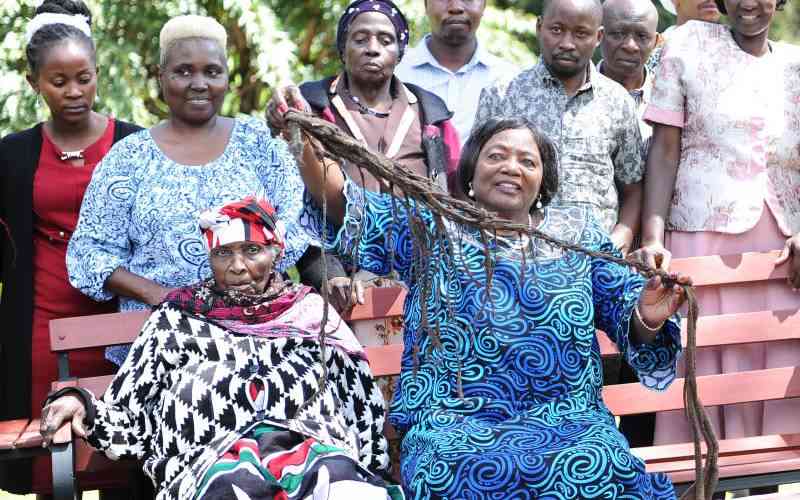
Former First Lady Mama Ngina Kenyatta this week reignited the touchy debate on the fate of Kenya's freedom fighters and other national achievers.
A tough-taking Mrs Kenyatta, who met Field Marshall Mary Muthoni in Nairobi on Thursday, was forthright in her displeasure with how the country treats its special class of citizens. She took the moment to tell off modern-day parrots, who, in her words, masquerade as men and women who did wonders for the nation. Some, she says, are seeking undeserved credit for work done by others in the seminal stages of the republic.